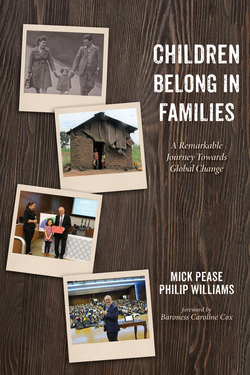Читать книгу Children Belong in Families - Mick Pease - Страница 11
На сайте Литреса книга снята с продажи.
4. Following the Call
ОглавлениеDon’t let it die!
“So João, what would you recommend I do if I want to work with street kids and in child protection here in Brazil?”
João Bosco de Carvalho, an experienced Brazilian children’s worker, raised his eyebrows. A sardonic smile spread across his face.
“Learn Portuguese?”25
We both laughed but recognized the serious point. It wasn’t what we wanted to hear but knew instinctively that it was right. We had both seen too many well-meaning aid workers or missionaries bumbling along with no grasp of the language and culture.
We learned Portuguese. Rachel Thornton, a languages student at Leeds University, gave Brenda and I some coaching before we set off for Brazil in 1997. Rachel met her husband Richard while they were both missionaries in Brazil. Richard later worked as an accountant and they returned to Brazil for a few years through a job exchange. They joke that I was to stay in their spare room so often during my regular visits to Brazil that they named it “The Suite Pease.”26
We also enrolled on an evening class. For over a year we grappled with the grammar and pronunciation. Our good friend and collaborator, family lawyer Ranjit Uppal, laughs as he tells of how truly impressive our grasp of the language came to be. One afternoon under a blazing Brazilian sun, as Ranjit and his wife Raj accompanied me on a training and advocacy visit, I confidently ordered a light meal at a restaurant. One by one the plates kept coming. Soon the table was groaning under the weight of main courses and side dishes. Instead of ordering the lightest option, I had ordered a banquet!
If I was to struggle with language on my later visits to Brazil, I was struggling with accents during our last months in the English Midlands. I have often joked that I knew our time there was at an end when I heard Mark and Kevin picking up the regional accent, the slow, almost lethargic “Brummie” drawl.27 It was then I knew we had to move back to Yorkshire. I wanted my lads to have the “broad Yorkshire” accent and to support Leeds United!28
It was more than homesickness and regional pride that drew us back north. My time working at the residential home was the toughest of my career. The incident with Eddie had affected me deeply. The kids were lovely in so many ways, but for me, unruly, cheeky, and hard to deal with. We were on call 24/7. I was nearing burnout.
Once a week I rang John Ellerington at a public call box at a prearranged time. He did not have a telephone at home. In the cold and wet he walked faithfully to the call box to listen to me unload. He remembers hearing the dejection in my voice. What were we doing in Birmingham? We knew few people. We had no family there, few friends.
“I’ve a mind to jack it all in, John,” I told him. “Come back up north. Go back down the pit.”
I did once ask the pit managers if they would have me back. We even put our names on a public housing list and the boys on a school list expecting to return to Yorkshire. Once again, things worked out differently to how we had planned.
“Living in” at the children’s home was very stressful. I could cope with the early afternoons. Those were my times for writing up notes and reports, but as the evenings approached and the children returned from school, my stress levels rose. I knew there would be an issue or an incident. Kids often ran away while I was on night duty and I’d call the police out to look for them.
“Lock them up,” the local police would say, exasperated at yet another call.
“Lock them up? Why? They’re not criminals.”
“Then you get out after them, stop calling us out all the time!”
I recall another time chatting in a nearby bar with some players from a squash league I joined. One asked me where I worked so I pointed across the road toward Princess Alice Drive.
“What? With those unruly kids? What have they done to end up inside there?”
I retorted that most of them had done nothing wrong. They were the innocent victims of inappropriate adult behavior. “They aren’t the problem, their families are!”
No matter how much the kids stretched me, I always defended them.
Brenda had less hassle with them. She was like a mother figure. They would push back at me, try to move the boundaries, test me out to see how far they could go. It was all to do with rejection, of course. They opposed authority figures in order to assert their own sense of individuality or self-worth. So around 3:30 p.m., come rain or shine I went for a walk to clear my head and prepare for whatever the evening held.
